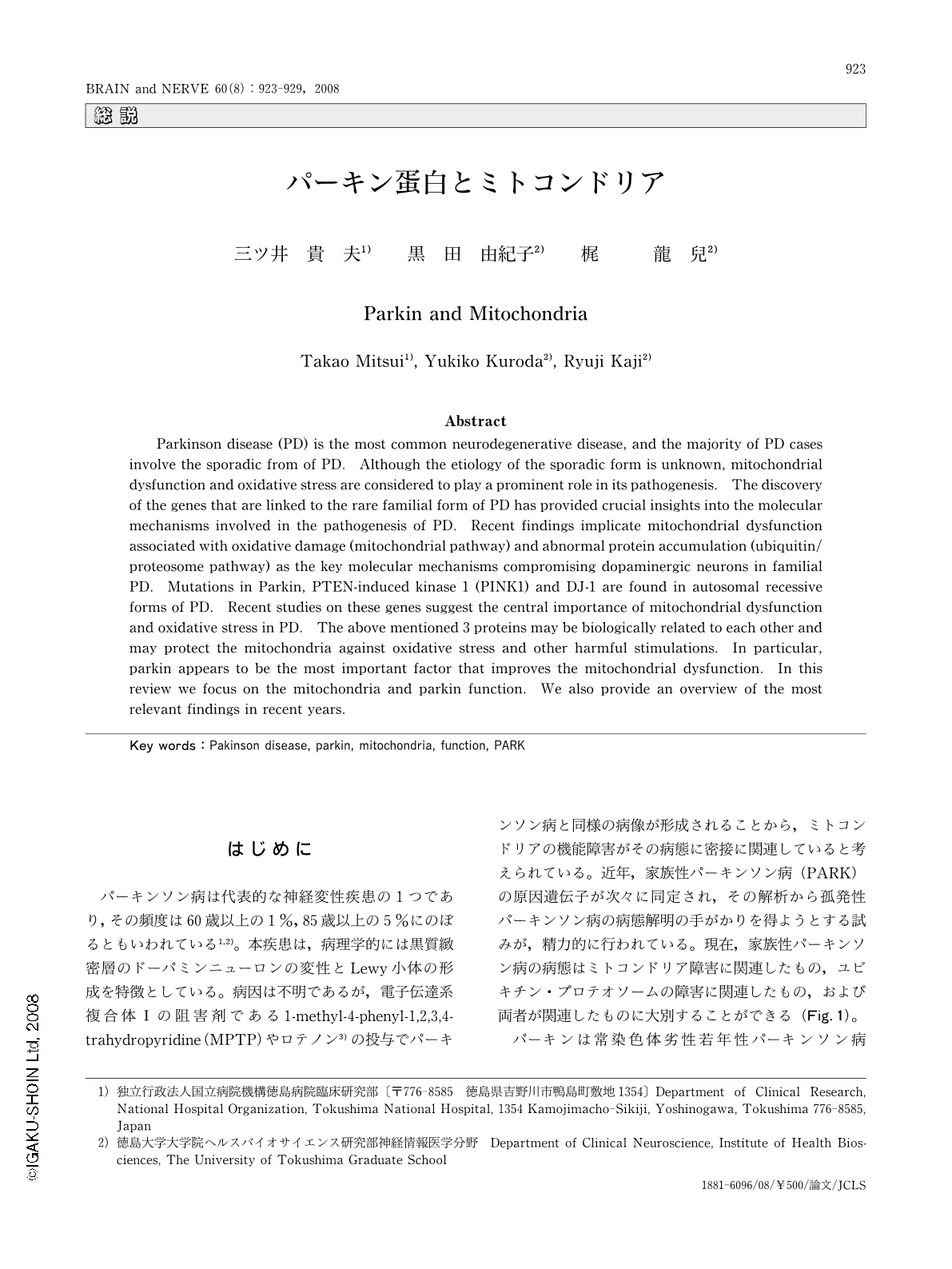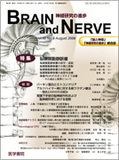Japanese
English
- 有料閲覧
- Abstract 文献概要
- 1ページ目 Look Inside
- 参考文献 Reference
はじめに
パーキンソン病は代表的な神経変性疾患の1つであり,その頻度は60歳以上の1%,85歳以上の5%にのぼるともいわれている1,2)。本疾患は,病理学的には黒質緻密層のドーパミンニューロンの変性とLewy小体の形成を特徴としている。病因は不明であるが,電子伝達系複合体Ⅰの阻害剤である1-methyl-4-phenyl-1,2,3,4-trahydropyridine(MPTP)やロテノン3)の投与でパーキンソン病と同様の病像が形成されることから,ミトコンドリアの機能障害がその病態に密接に関連していると考えられている。近年,家族性パーキンソン病(PARK)の原因遺伝子が次々に同定され,その解析から孤発性パーキンソン病の病態解明の手がかりを得ようとする試みが,精力的に行われている。現在,家族性パーキンソン病の病態はミトコンドリア障害に関連したもの,ユビキチン・プロテオソームの障害に関連したもの,および両者が関連したものに大別することができる(Fig.1)。
パーキンは常染色体劣性若年性パーキンソン病(ARJP)の原因遺伝子として1998年に発見され4),現在は家族性パーキンソン病(PARK)2として分類されている。PARK 2は最も高頻度(10~20%)に認められる家族性パーキンソン病で,ARJPの50%以上がパーキン遺伝子の異常に起因すると考えられている2,5)。パーキン遺伝子の転写産物は,これまでユビキチン・プロテオソーム系に関連した機能を有すると考えられてきた。しかしながら,最近ではパーキン蛋白がミトコンドリアに関連した機能も有することが相次いで報告されてきたことから,本総説ではこの点に焦点をあて,われわれの成績を含めて概説する。
Abstract
Parkinson disease (PD) is the most common neurodegenerative disease, and the majority of PD cases involve the sporadic from of PD. Although the etiology of the sporadic form is unknown, mitochondrial dysfunction and oxidative stress are considered to play a prominent role in its pathogenesis. The discovery of the genes that are linked to the rare familial form of PD has provided crucial insights into the molecular mechanisms involved in the pathogenesis of PD. Recent findings implicate mitochondrial dysfunction associated with oxidative damage (mitochondrial pathway) and abnormal protein accumulation (ubiquitin/proteosome pathway) as the key molecular mechanisms compromising dopaminergic neurons in familial PD. Mutations in Parkin, PTEN-induced kinase 1 (PINK1) and DJ-1 are found in autosomal recessive forms of PD. Recent studies on these genes suggest the central importance of mitochondrial dysfunction and oxidative stress in PD. The above mentioned 3 proteins may be biologically related to each other and may protect the mitochondria against oxidative stress and other harmful stimulations. In particular, parkin appears to be the most important factor that improves the mitochondrial dysfunction. In this review we focus on the mitochondria and parkin function. We also provide an overview of the most relevant findings in recent years.

Copyright © 2008, Igaku-Shoin Ltd. All rights reserved.


